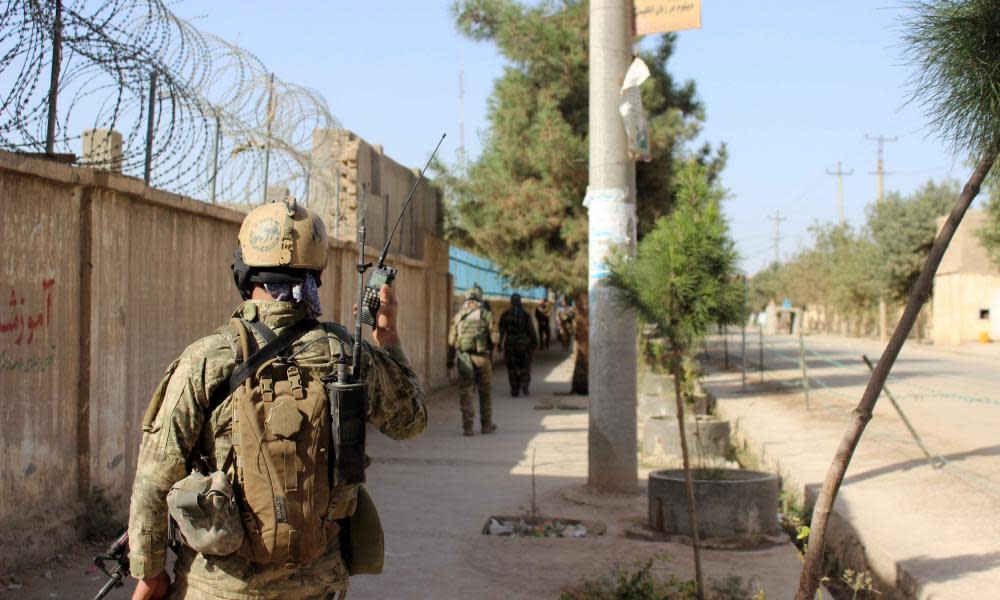US forces say Taliban 'target of interest' since 2011 killed in Afghanistan

The Pentagon said on Saturday Quari Tayib, a Taliban “shadow governor” in Afghanistan who evaded coalition forces for six years, has been killed.
In a statement, US forces in Afghanistan said Tayib was killed in a 17 April air strike in the Archi district of Kunduz province.
“The strike was part of ongoing efforts to deny Taliban freedom of movement in the area,” the forces said, adding that the attack “targeted a compound Tayib owned and used for insurgents in the area”.
Tayib, the military said, “had been a target of interest since 2011 and was directly responsible for deaths of US service members in Afghanistan”.
So-called shadow governors direct Taliban insurgents throughout Afghanistan’s 34 provinces. They rule more directly in regions where Kabul lacks control, for instance in southern areas where the the Taliban harvests and sells opium. The Taliban announced the deaths of two other shadow governors earlier this year, killed in separate strikes.
Eight “additional Taliban fighters” were killed in the 17 April strike, the Pentagon said, and “no other casualties or damage were associated with this strike”.
On Friday, more than 100 Afghan soldiers were killed by about 10 Taliban militants who disguised themselves as army personnel and infiltrated a base in a northern province. Suicide attackers had hidden bombs in fake casts and medical equipment, according to one official. Others were armed with automatic rifles.
American forces were on the base but no casualties were reported. In a similar infiltration last month, Islamic State militants dressed as doctors attacked an army hospital in Kabul, killing 38 people.
Donald Trump has spoken little about the war in Afghanistan, where 2,216 American service members have died in 15 years of fighting.
But the president has appeared to order a ramped up bombing campaign there, as in Iraq and Syria, drawing questions about whether he has lifted precautions about strikes in places with civilians. More than 100 civilians were killed in air strikes on Mosul, Iraq, last month.
Earlier this month the US dropped an unusually powerful bomb on a tunnel network in Afghanistan, which Kabul said killed 92 suspected militants with an Isis affiliate.
Peace talks between Kabul, Taliban leaders, the US and Pakistan have faltered. Qatar has attempted to act as a mediator, but in 2013 a flag of the “Islamic Emirate of Afghanistan” was raised over an office in Doha, and the first move toward talks collapsed.

 Yahoo News
Yahoo News 
